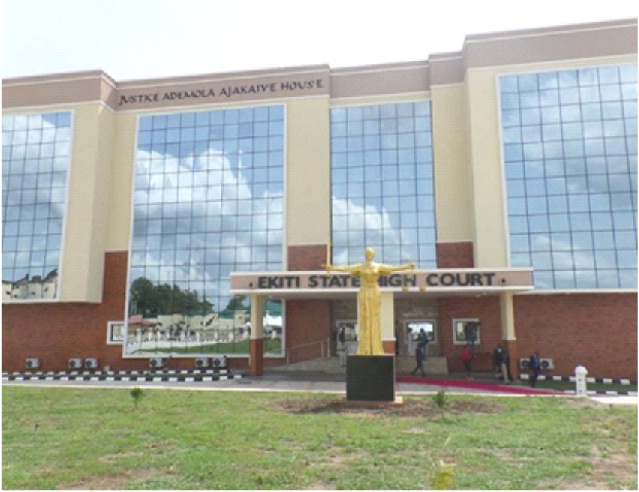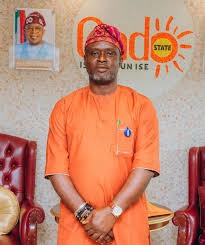As price of diesel soar, Nigerians embrace solar
By Adetokunbo Abiola
|
By the end of the year, going by the trend that experts see so far, they should have twelve MW of solar installations operational across Nigeria, or even more, says Prince Ojeabulu, the CEO of an Energy company.
By the end of the year, Nigeria could install 60 MW if it had the equipment, as companies have even started turning down customers, becoming more choosy with whom they work, says Daystar CEO and co-founder, Jasper Graf von Hardenberg.
By the end of the year, if $2bn is invested in the solar energy sector, most businesses can run comfortably on 8 to 12 hours of energy provision daily, Al Jazeera reports, adding that such an investment would also provide room for industrial growth and confidence in the investors market.
The solar panel market currently witnesses a boom, providing a room for industrial growth and confidence in the market by the end of the year, say Nigerian experts. In 2021, Rensource installed under 1MW of solar panels but it is now constructing 6 MW plants. An increase occurs this year of approved solar mini-grids serving industrial users, according to Punch newspapers. The Nigerian off-grid solar market ranks among the fastest-growing in Africa, increasing at 22 per cent average annual rate during the past five years, according to a study conducted by Boston Consulting Group and All On, a Shell-funded impact investment company.
Why are Nigerians turning to solar power? Unable to benefit from an installed electricity capacity of 12,500 megawatts, and with the national grid only providing 4,000 MW at peak, businesses and citizens heavily rely on diesel-powered generators. Consequently, the country spends $22bn annually on fuel for generators, according to the Energy Commission of Nigeria. Unfortunately, the price of diesel nearly tripled to 800 naira a litre ($1.93), most of that increase coming in the wake of Russia’s invasion of Ukraine. To avoid this, Nigerians turn to solar.
Also, 45 per cent of ordinary Nigerians live without access to electricity, spending their days living in darkness. The Renewable Energy Association of Nigeria (REAN) indicates that the number of Nigerians without access to grid electricity was 85 million, which accounts for 43 percent of the country’s rural population. To gain power, solar becomes the answer.
Inadequate power supply creates social challenges for rural residents through the fuelling of poverty and want. The logical conclusion of a lack of access to farm irrigation, storage, and agro-processing means unemployment and underemployment.
Unwilling to survive with the looming growth of unemployment and unemployment, many Nigerians living in the rural areas see solar power as a solution to their challenge of want and poverty. The same thing happens to thousands of Nigerians in the urban areas, who groan for a lack of access to grid electricity. Businessmen try to replace the use of generators with solar power, to evade the tripling prices of diesel that rose in the wake of Russia’s invasion of Ukraine.
Obviously, Nigerians enjoy benefits from solar power panels. They bring in a monthly savings of well above N25,000 in many parts of the country, cutting off the spending on fuel for the generator and power bill, according to a recent research. When the gains extend to two decades, less than the length of a typical solar panel warranty, this translates to over N6,000,000, said the research.
Solar energy does not require maintenance once it is set up, with the panels able to last over 25 years, having no need for repairs like the case with generator sets that require a routine servicing. It uses the energy from the sun, which has been converted for usage and is always free.
An investment in solar-powered plants increases the availability of electricity to almost 80 million people who currently have none in the country, says the World Bank in a research report. This means a transition to solar-based energy helps diversify Nigeria’s energy portfolio and cuts off high electricity bills, as was the case with many Nigerians since the increasing adoption to solar power for businesses.
Now, many businesses have no worry about fuel scarcity or noise, which makes the adoption of solar power to be a sensible idea. Of course, the initial cost of acquiring solar remains high, but maintenance cost proves cheap on its adoption, and since the cost from buying fuel for generators is absent, businessmen don’t think about spending money for the purchase of fuels.
Still problems persist. A huge gap in terms of manpower exists in the renewable energy market in Nigeria, so several solar energy companies doing mini-grid in rural communities should strive to prevent the skill- import problem plaguing the sector, says Ebami Arogboritse, the registrar of Asteven Renewable Energy Academy.
Solar manufacturers in the country need encouragement to grow the market through the enactment of policies that can drive the market towards development. The government therefore needs to encourage this growing sector, which is made up mostly of the youths, especially as the solar industry has the capacity to create millions of jobs if allowed to thrive, an expert said.
Local financing has been difficult to access too, executives say, so money should flow from local and overseas development financial institutions looking to invest in businesses focusing on green energy.
If Nigerians succeed in getting local and international finance for solar development, encouraging solar manufacturers to grow, perhaps the problems related to the dearth of manpower in the sector will fade, making the growing trend towards solar energy a sustainable venture in the near future.










